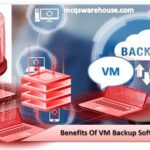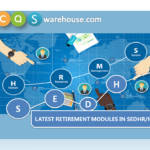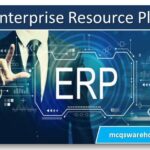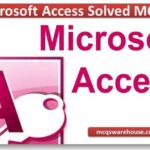Enterprise Resource Planning Systems
Top 10 Enterprise Resource Planning Systems:
How do you know which ERP to choose? ERP systems vary widely in terms of the modules and features they offer, as well as their size and cost. As with other enterprise software solutions, there are several enterprise resource planning (ERP) systems you can choose from, depending on your business’s needs. The good news is that we have compiled a list of the 10 best enterprise resource planning systems available today in order to help you narrow down your options and make an informed decision when it comes to selecting an ERP system for your business.

1) Financial modules
Finance-related ERP modules can make or break a project. The best of these apps can handle budgets, cash flow management, costing, expenses and account management. Cloud-based finance software may not be as advanced as your company’s current system, but it comes with built-in data backups and monitoring for compliance purposes. Cloud providers such as Intact offer tiered service levels to accommodate small businesses that need only basic features, such as expense tracking and invoicing; more complex applications that are used by midsize companies include budgeting functionality and accounts payable functionality; enterprise level ERP systems incorporate financial reporting modules and typically feature advanced currency exchange capabilities. For example, you might want to use an app that provides multi-currency support if you’re planning on expanding internationally.
2) Manufacturing & Assembly modules
In manufacturing, you need a system that helps with planning, tracking, and producing products. This module allows companies to reduce costs by controlling inventory, streamlining supply chain logistics, and increasing capacity utilization. ERP systems for manufacturing also automate tasks like production orders, shipping documents and receiving reports. A good ERP system integrates with other critical software applications to enable one-step changeover from CAD to machining. If a company designs a product in 3D but does not have an efficient way of translating it into 2D for manufacturing—their business may be missing out on quality improvements that affect market share. This can be avoided by having an integrated design-to-manufacturing solution that goes from concept to shop floor in minutes instead of days or weeks.
This is only one example of how effective an enterprise resource planning (ERP) system can be for your business. You will find many more ways to use your ERP software if you invest time researching how others are using theirs. It’s important to note that there are different types of ERP solutions depending on what industry you are in. No matter what kind of business you run, make sure your ERP vendor is offering flexible options so they can meet your specific needs as they grow and evolve over time. Your number one goal should always be choosing a provider who has proven expertise with organizations just like yours – whether they’re small businesses or large enterprises – since no two organizations are alike and neither should their solutions.

3) Purchasing & Procurement modules
Purchasing and procurement modules help track orders and make sure supplies are on hand. Companies that do a lot of purchasing tend to see a high return on investment for these types of modules. For companies that buy large amounts of products, such as restaurants or retail stores, enterprise resource planning systems can help streamline ordering processes, automatically generating purchase orders from PO numbers if needed. Additionally, ERP systems can inform managers when they’re running low on inventory or even send them an email reminder to place an order soon so there aren’t any delays in product delivery—important in both foodservice and retail industries where freshness is key.
4) Human Resources modules
An HR module is integral to any company’s success. A good enterprise resource planning (ERP) system will provide you with a centralized database that enables you to manage all employee records, payroll data, employment contracts and expenses in one place. HR modules are usually geared toward larger companies that have many employees and manage a large number of payroll transactions each month. Some of these features include The ability to create reports based on an individual or group of employees’ salaries or bonuses.
For example, if you want to see what everyone makes who works under Joe Smith, you can easily pull up that information. You can also generate reports on how much your company has paid out in bonuses over time. The ability to set up job descriptions for new hires and existing staff members. Job descriptions tell workers what their responsibilities are at work and help ensure they know what is expected of them at all times while they’re on duty. The ability to monitor vacation time for your staff members as well as their sick days so that you can quickly determine who’s available for a project when it comes up without having to check multiple spreadsheets or databases from different systems first.
5) Inventory Management modules
Inventory management is one of the most important ERP modules for companies that rely on manufacturing, wholesale or distribution. While these businesses usually have a strict and complex supply chain process, it can be cumbersome to try to manage inventory from multiple locations. The inventory management module tracks each product’s movement through each step in your supply chain, reducing delays and costly mistakes. Many enterprise resource planning (ERP) systems allow users to automate product delivery and reduce inventory when you sell below certain quantities or alert you when certain products are running low so you can order more stock before it’s needed.

6) Material Requirements Planning (MRP II) modules
Determine which ERP modules you need for your organization’s growth plans. The module-determining process is typically a top-down approach. Also begins with a corporate forecast (not unlike what a CFO might do to determine budgets and cash flow requirements). And also continues down to break up that overall number into pieces (or modules) of work, by department, product line or activity. Also each module is given an estimated timeline, budget and staffing needs. The goal is to make sure all of these requirements will be met within your overall plan. This method adequate supplies ready when they’re needed.
7) Sales modules
No matter what you do, sales is important. From a company’s perspective, the best way to make money isn’t by charging as much as possible for their product; it’s by offering products and services that are affordable and provide lots of value. That’s where enterprise resource planning (ERP) systems come in. Also they allow businesses to keep track of what sells well and what doesn’t, so they can pivot accordingly. According to Gartner, The foundation of any ERP system is its sales management module.
8) Transportation modules
Many enterprise resource planning (ERP) systems offer transportation management modules. That also allow users to analyze shipping data, make purchasing decisions and streamline shipment routes. By integrating information from various sources. These transportation management modules enable decision-makers to compare different shipping methods and anticipate potential issues. One study found that 50 percent of U.S. companies using ERP systems use transportation management modules for fleet tracking. 44 percent for scheduling route optimization and 28 percent for dispatching vehicles. While many organizations still prefer traditional methods of managing shipping logistics. ERP systems used to collect and access information about shipments and also on a real-time basis.

9) Customer Relationship Management (CRM) modules
With a CRM system, you can track your customers’ behavior. This information can help identify customers with high lifetime value and low profit margins. So you can focus on increasing their value or reducing their purchases. With enterprise resource planning (ERP) systems. For example, it’s also possible to set up manufacturing processes that streamline how goods flow through your company. If you’re looking for business software to help you build better relationships with clients. And Also increase profitability across your organization, one of these top 10 ERP systems could be a good option.
10) Logistics and Distribution modules
This is where supply chain planning and product ordering takes place. Logistics covers everything from transportation to inventory storage, including cross-docking, warehouse management, shipping and receiving. It’s also important for companies to understand their bottom line when it comes to logistics—how much does each shipment cost? How much can you charge per item? How often do you order new items?
Also Read:
Top Enterprise Resource Planning Questions For Interview





